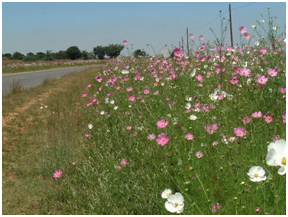
MARFAM WEEKLY E-NEWSLETTER 2 APRIL 2025
In the 2025 Jubilee document Pope Francis calls on us to be Pilgrims of Hope while it also contains a section on Signs of Hope. ”The signs of the times, which include the yearning of human hearts in need of God’s saving presence, ought to become signs of hope. The first sign of hope should be the desire for peace in our world, which once more finds itself immersed in the tragedy of war.”
This weekend was the jubilee for Missionaries of Mercy. Sunday’s gospel was the story of the Prodigal Son or could it be the Forgiving Father, or even the Prodigal Father with a deeper understanding of the word prodigal. And then, I always miss the presence of a mother. So here is another perspective on the story.
“Jose Manuel had come from Madeira with practically nothing but some sound words of advice from his mother. “Find yourself a good girl who will be a good mother to your children and when you’re in trouble pray to the Virgin.” He had been lucky that an uncle was able to help him get a job and being hardworking he was soon earning good money and could impress the girls. He did marry a good girl who bore him three daughters and, after much prayer to the Virgin, finally a son. His bottle-store business was going well and he had become a rich and influential man in the community. He doted on the boy Paolo and gave him everything he wanted, but seldom took notice of his Maria and their daughters who came to resent their spoilt little brother. At high school Paolo started getting into trouble. There were plenty of friends to help him spend his money. They introduced him to alcohol and drugs and of course girls. At first his father refused to listen and would brush Maria aside when she and the girls tried to talk to him. After Paolo was arrested for drunken driving and Jose had to bail him out for the second time, he was very angry and gave the boy an ultimatum. “Get your life together or leave home,” he shouted, never thinking that would happen, but it did. Arrogantly Paolo chose to leave home, demanded his inheritance and left town. Jose Manuel was shattered. At first he was angry and stormed around the store and house yelling at everyone. Then he became withdrawn and would sit by the window looking down the road. The daughters took over running the business. At times Jose ranted and raved, at times he even cried but always he blamed everyone else. Days, weeks and months passed. Paolo had secretly been in touch with his mother on whatsapp and even sometimes asked her for money. She tried to talk to his father but he refused to listen. She started a novena to the Virgin Mary and left pictures of Paolo around the house.
One night Jose had a dream, seeing young Paolo playing his first soccer match and scoring his first goal. When the team lost the match, the boy came running to his dad in tears. Jose hugged him saying, “Don’t worry son I’ll always be there for you.” The next morning he asked Maria, “Do you know where Paolo is? Do you think he needs me?” “But of course, Papa” Paolo’s mother said, “He and you have always needed each other but sometimes you are both too proud. Why don’t you call him and ask him to come home for Easter.” He picked up the phone. “Hi dad,” came the reply, “I was just about to call you. I’m sorry to hear you haven’t been too well. I really would like to come home for Easter. Is that OK with you?”

Deacon concluded the story, “Is it possible that behind every forgiving father is a manipulating, concerned, never-letting-go, determined-to-make-peace mother? Could we maybe even say that mercy is one of the feminine qualities of God? Where do you most experience mercy in your families?”
There are many reflections on this gospel story. Some focus on the selfish spendthrift younger son, others on the jealous elder son and his selfish response to the father. The term prodigal is generally understood as extravagant but being selfishly wasteful. Another meaning can be overly generous, unnecessarily so. I might think that God is prodigal in the amount of seeds that plants are able to produce. In that sense the father is also prodigal as he goes beyond what could be expected. It could even lead to what is a common term in SA at present, transformation, in the behaviour of the young son. TR
| That is how the peace group Pax Christi describes the incident. I quote from their interpretation. something valuable for us to unpack. “As Pax Christi International celebrates its 80th anniversary, it suggest that readers reflect on the impact of decades of peacebuilding and the transformative power of nonviolence. Would that this approach be applied to the many forms of violence in SA. Extracts from Reflection by Nicolás Paz, Director of the Catholic Nonviolence Initiative. Nonviolent Bridges for Transformation. The Prodigal Son, Nonviolence, and the Disruptive Answer to Violence. The Fourth Sunday of Lent, is a moment of joy and hope amid the Lenten season. The Parable of the Prodigal Son speaks to the transformative power of mercy, forgiveness, and love. It is also a powerful lens to reflect on nonviolence as a bridge of personal, communitarian and international transformation. Nonviolent action disrupts cycles of violence, harm and destruction in our daily lives, from family realities to contexts of war and armed conflicts. But how does nonviolence work? Where does its power come from? In the parable, the younger son expects rejection when he returns home, but instead, his father welcomes him with open arms, love, joy and even celebration. This story mirrors the transformative power of nonviolence. The father’s response is disruptive, unexpected. He does not seek retribution or demand compensation. It is revolutionary, most of the time it is even difficult to understand. The older brother, unable to understand such an answer, embodies today’s logic of symmetrical response, of an eye for an eye, as if that could produce any kind of justice except full blindness. In a world where violence – whether physical, verbal, psychological, cultural or structural – is often met with retaliation, Jesus teaches a different way. “I am the way and the truth and the life” (John 14:6). He teaches us the nonviolent bridges of transformation, the active nonviolent answer to resist others and our own violence, offering more life in the middle of a world that answers destruction with more destruction.” For more details contact Pax Christi International https://paxchristi.net |

THOUGHTS FOR THE DAY. APRIL 2.
April 2. The Father judges no one, but has given all judgement to the Son, “I hate him. Whenever I read about Jesus and his Father I feel so angry.” Jason yelled at his mom. “Why doesn’t my father look after us as he should? Where is he, anyway? Do you know who my father is, so I can go and find him and tell him what I think?” Moyra cringed when her son carried on like that. She knew the situation wasn’t right, that boys really do need a father’s love for their own good and also to get to understand what kind of person God is.

Reflect, share and act. Scripture: My Father is working still and I am working. The Father judges no one, but has given all judgement to the Son, that all may honour the Son as they honour the Father. From John 5:17-30. Pope Francis: Jesus wants to bring us to the Father. That is why, from the very beginning, the Church’s preaching does not end with Jesus, but with the Father. The Aramaic word Jesus used to address the Father was “Abba”, an intimate and familiar term that some found disconcerting. He addressed the Father in expressing his anguish at his impending death: “Abba, Father, for you all things are possible; remove this cup from me; yet, not what I want, but what you want” (Mk 14:36). Jesus knew well that he had always been loved by the Father: “You loved me before the foundation of the world” (Jn 17:24). In his human heart, he had rejoiced at hearing the Father say to him: “You are my Son, the Beloved; with you I am well pleased”. DN37, 72 JUBILEE. This Jubilee experience of full forgiveness cannot fail to open our hearts and minds to the need to forgive others in turn. Forgiveness does not change the past; it cannot change what happened in the past, yet it can allow us to change the future and to live different lives, free of anger, animosity and vindictiveness. Forgiveness makes possible a brighter future, which enables us to look at the past with different eyes, now more serene, albeit still bearing the trace of past tears. SNC 23. Choose an act of love and sacrifice from the list, also published at www.marfam.org.za







Recent Comments